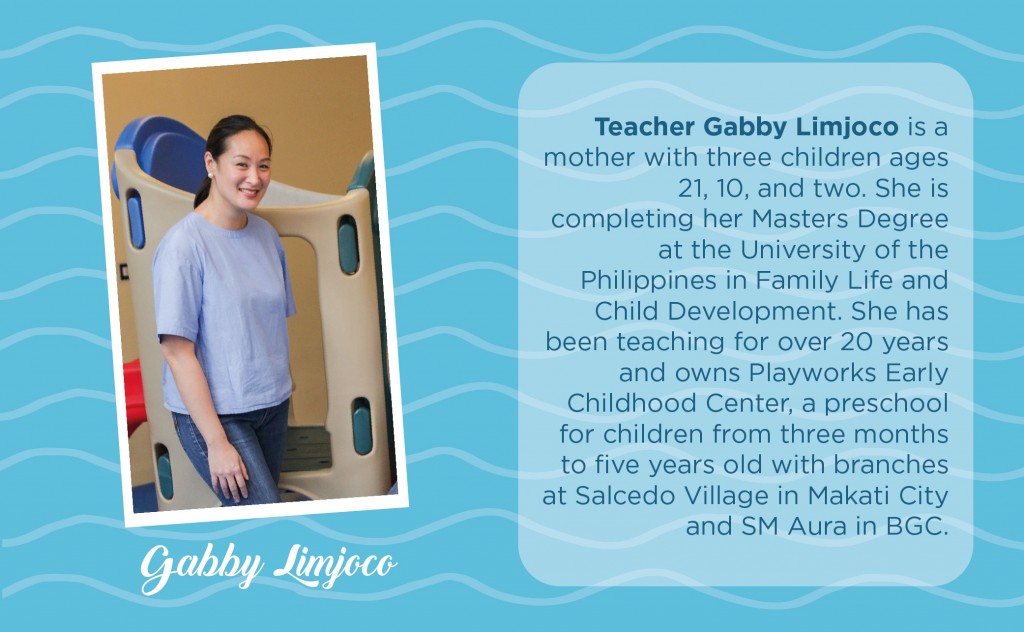By Teacher Gabby Limjoco
Our yaya is one of the most important people in our household and yet so many moms struggle with feelings of jealousy and worry about their child’s relationship with their yayas. As directress of Playworks Early Childhood Centers, I have spent a lot of time chatting with moms and yayas alike.
Moms have tearfully shared how their child was crying for yaya while the family was on vacation without her. Others have angrily talked about their kids running to yaya while mommy is disciplining them, some going so far as to say, “I hate you, Mom. I want Yaya only.” I have encountered so many yayas in the preschool and I see how much influence they have on a child’s development. Our yayas are our partners in raising our children and we need to discuss with them our views on discipline and guiding behavior. Here are some things I’ve learned which can help us partner with our yayas in guiding our children’s behavior.
#1 Be mindful of your yaya’s own upbringing.
It was my yaya now who told me that when we interview household helpers, we should consider her background and upbringing. Much can be inferred about her sense of malasakit, her professionalism, or sense of duty and responsibility. We should be mindful of staff members who have been out of the home from an early age, and are thus deprived of parental guidance. We should also ask yayas how they were disciplined or how they discipline their own children. This would give us insights into their child rearing practices and philosophies, which may become instinctive for them during challenging situations.
#2 Tell your yaya how you want your child to be disciplined.
Will you allow your yaya to scold your child? Can she use threats or withhold toys as a technique? How do you feel about scare tactics such as saying the guard will get them or the cockroach is there? Will you allow coercion or bribes?
You need to examine your own beliefs about discipline. In the school, we view a young child’s behavior as mistaken behavior rather than misbehavior. Young children are learning how to manage their strong emotions and how to behave in socially acceptable and respectful ways, they do not intend to misbehave. Viewing their behavior as mistakes reminds us to take a more guiding stand and treat moments as teachable moments rather than instances for punishment. You need to discuss your own beliefs with your yaya to help her understand where you are coming from. You should also outline what techniques are acceptable and unacceptable in your home.
#3 Remind your yaya about consistency.
The rules you set for your child should be carried out at all times, whether you are present or not. Most yayas spend at least 12 hours with their charges. They need to ensure that your rules and the things you value are being upheld even if you are not home. They will be the ones guiding your child toward behaviors that are acceptable.
You also need to be mindful of the bad cop – good cop behavior. When you are disciplining your child, yaya needs to ensure the consistency of your message. She needs to be your partner in explaining to your child and not act as the good cop/savior and make you out as the bad cop.
#4 You need to be mindful that yayas mean well.
Your yaya’s main job is to take care of your child and ensure his safety. She could be overly protective to avoid any untoward incidents. She may also use techniques that you don’t adhere to just to keep your child in a loving relationship with her. Try to reassure your yaya and help her feel secure in her position when applicable.
If you see your yaya as your partner, you will be able to effectively work together in raising your child. From the onset, make sure to choose well and not just for the sake of filling the position. Constantly communicate and discuss any concerns immediately so that you can ensure that you and your yaya are on the same page.



Leave a Reply